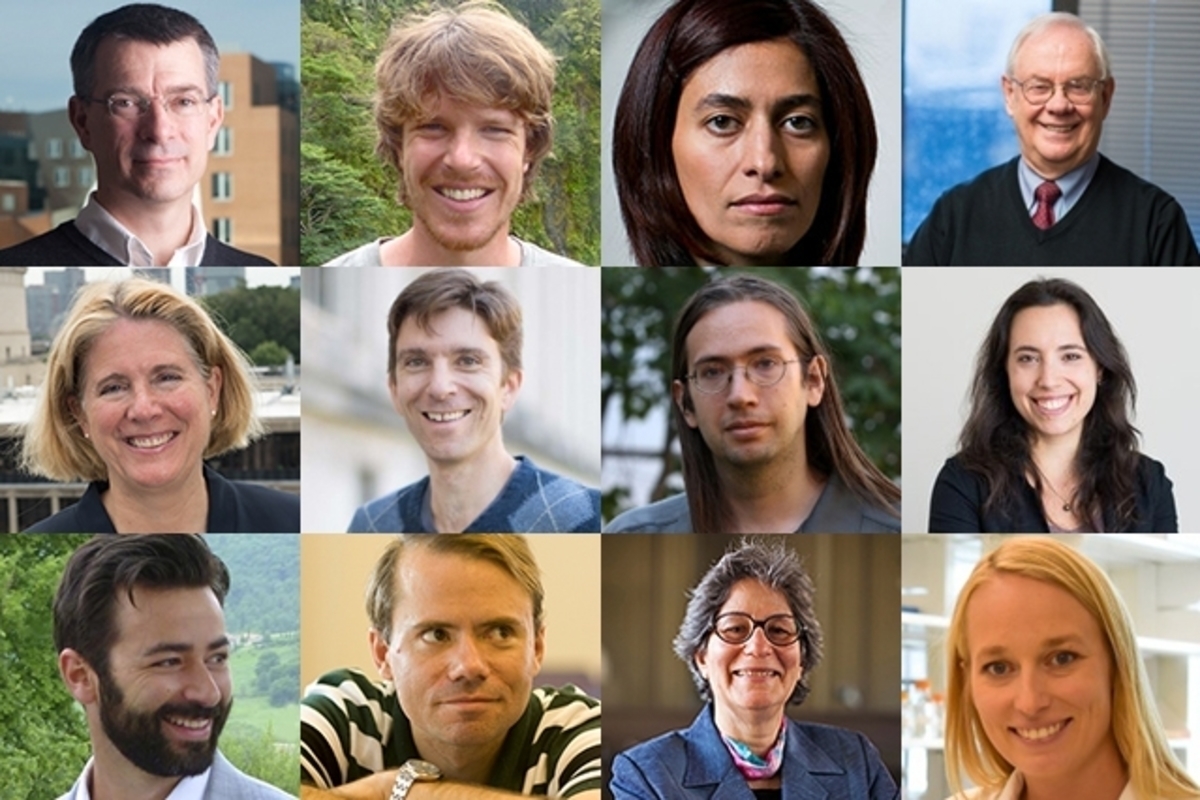PAOC Spotlights
Twelve School of Science Faculty Members Appointed to Named Professorships

The School of Science has appointed 12 faculty members to named professorships.
The new appointments are:
Stephen Bell, the Uncas (1923) and Helen Whitaker Professor in the Department of Biology: Bell is a leader in the field of DNA replication, specifically in the mechanisms controlling initiation of chromosome duplication in eukaryotic cells. Combining genetics, genomics, biochemistry, and single-molecule approaches, Bell has provided a mechanistic picture of the assembly of the bidirectional DNA replication machine at replication origins.
Timothy Cronin, the Kerr-McGee Career Development Professor in the Department of Earth, Atmospheric and Planetary Sciences: Cronin is a climate physicist interested in problems relating to radiative‐convective equilibrium, atmospheric moist convection and clouds, and the physics of the coupled land‐atmosphere system.
Nikta Fakhri, the Thomas D. and Virginia W. Cabot Professor in the Department of Physics: Combining approaches from physics, biology, and engineering, Fakhri seeks to understand the principles of active matter and aims to develop novel probes, such as single-walled carbon nanotubes, to map the organization and dynamics of nonequilibrium heterogeneous materials.
Robert Griffin, the Arthur Amos Noyes Professor in the Department of Chemistry: Griffin develops new magnetic resonance techniques to study molecular structure and dynamics and applies them to interesting chemical, biophysical, and physical problems such as the structure of large enzyme/inhibitor complexes, membrane proteins, and amyloid peptides and proteins.
Jacqueline Hewitt, the Julius A. Stratton Professor in Electrical Engineering and Physics in the Department of Physics: Hewitt applies the techniques of radio astronomy, interferometry, and image processing to basic research in astrophysics and cosmology. Current topics of interest are observational signatures of the epoch of reionization and the detection of transient astronomical radio sources, as well as the development of new instrumentation and techniques for radio astronomy.
William Minicozzi, the Singer Professor of Mathematics in the Department of Mathematics: Minicozzi is a geometric analyst who, with colleague Tobias Colding, has resolved a number of major results in the field, among them: proof of a longstanding S.T. Yau conjecture on the function theory on Riemannian manifolds, a finite-time extinction condition of the Ricci flow, and recent work on the mean curvature flow.
Aaron Pixton, the Class of 1957 Career Development Professor in the Department of Mathematics: Pixton works on various topics in enumerative algebraic geometry, including the tautological ring of the moduli space of algebraic curves, moduli spaces of sheaves on 3-folds, and Gromov-Witten theory.
Gabriela Schlau-Cohen, the Thomas D. and Virginia W. Cabot Professor in the Department of Chemistry: Schlau-Cohen’s research employs single-molecule and ultrafast spectroscopies to explore the energetic and structural dynamics of biological systems. She develops new methodology to measure ultrafast dynamics on single proteins to study systems with both sub-nanosecond and second dynamics. In other research, she merges optical spectroscopy with model membrane systems to provide a novel probe of how biological processes extend beyond the nanometer scale of individual proteins.
Alexander Shalek, the Pfizer Inc.-Gerald Laubach Career Development Professor in the Department of Chemistry: Shalek studies how our individual cells work together to perform systems-level functions in both health and disease. Using the immune system as his primary model, Shalek leverages advances in nanotechnology and chemical biology to develop broadly applicable platforms for manipulating and profiling many interacting single cells in order to examine ensemble cellular behaviors from the bottom up.
Scott Sheffield, the Leighton Family Professor in the Department of Mathematics: Sheffield is a probability theorist, working on geometrical questions that arise in such areas as statistical physics, game theory and metric spaces, as well as long-standing problems in percolation theory.
Susan Solomon, the Lee and Geraldine Martin Professor in Environmental Studies in the Department of Earth, Atmospheric and Planetary Sciences: Solomon focuses on issues relating to both atmospheric climate chemistry and climate change, and is well-recognized for her insights in explaining the cause of the Antarctic ozone “hole” as well as her research on the irreversibility of global warming linked to anthropogenic carbon dioxide emissions and on the influence of the ozone hole on the climate of the southern hemisphere.
Stefani Spranger, the Howard S. (1953) and Linda B. Stern Career Development Professor in the Department of Biology: Spranger studies the interactions between cancer and the immune system with the goal of improving existing immunotherapies or developing novel therapeutic approaches. Spranger seeks to understand how CD8 T cells, otherwise known as killer T cells, are excluded from the tumor microenvironment, with a focus on lung and pancreatic cancers.
Read this story at MIT News.